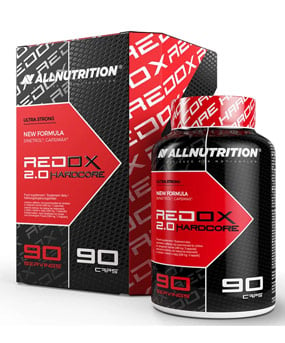No wlasnie. Zwyklo sie ja zachwalac jako jeden z lepszych suplementow. Niektorzy uwazaja ja nawet za lepsza od kreatyny przy dlugotrwalyym stosowaniu. Tymczasem znalazlem cos takiego:
Thats pretty much it.
There is no real benefit for someone looking to build bigger muscles. That 10% of dietary glutamine that gets past the GI tract is taken up by the liver where it is converted into sugar (gluconeogenesis) and stored as glycogen in the liver.
Don't let in-vitro research fool you into thinking oral glutamine will have an effect on a healthy individuals muscle mass. Yes, glutamine does regulate protein synthesis to a certain extent under some situations. However, you can't make it happen by taking it orally. Don't let ads with some pro-bodybuilder holding a bottle of glutamine fool you. Even if that pro-bodybuilder is taking it...it isn't doing anything for him either.
Here are a couple good "in-vivo" research studies to start with:
1. Candow DG, Chilibeck PD, Burke DG, Davison KS, Smith-Palmer T. Effect of glutamine supplementation combined with resistance training in young adults. Eur J Appl Physiol. 2001 Dec;86(2):142-9.
2. Antonio J, Sanders MS, Kalman D, Woodgate D, Street C. The effects of high-dose glutamine ingestion on weightlifting performance. J Strength Cond Res. 2002 Feb;16(1):157-60.
Keep in mind that if you are eating protein powders, especially any thing with whey in it, you are getting plenty of glutamine. The question of glutamines worth in the newsletter centered on its effect on building mass and/or strength, not anything to do with the gastrointestinal track.
In short, only 47-50% of orally administered glutamine can be expected to make it past the liver and other organs, into the blood stream. And only about 10% can be expected to reach extracellular spaces.[Bowtell JL, Gelly K, Jackman ML, Patel A, Simeoni M, Rennie MJ. Effect of oral glutamine on whole body carbohydrate storage during recovery from exhaustive exercise. Journal of Applied Physiology. 1999 Jun;86(6):1770-7] Now, this is the main argument against glutamine. 90% of the glutamine you take orally never even makes it to your muscles. This isn't to say it is wasted. Your GI tract loves glutamine from reasons explained earlier. If you are having intestinal problems nothing is better. If you are trying to increase protein synthesis by loading glutamine, it isn't going to work.
Zrodlo:
http://www.hypertrophy-specific.com/cgi-bin/ib3/ikonboard.cgi?s=8719131b2d0266685b37e91324616eb9;act=ST;f=13;t=25
emr
Thats pretty much it.
There is no real benefit for someone looking to build bigger muscles. That 10% of dietary glutamine that gets past the GI tract is taken up by the liver where it is converted into sugar (gluconeogenesis) and stored as glycogen in the liver.
Don't let in-vitro research fool you into thinking oral glutamine will have an effect on a healthy individuals muscle mass. Yes, glutamine does regulate protein synthesis to a certain extent under some situations. However, you can't make it happen by taking it orally. Don't let ads with some pro-bodybuilder holding a bottle of glutamine fool you. Even if that pro-bodybuilder is taking it...it isn't doing anything for him either.
Here are a couple good "in-vivo" research studies to start with:
1. Candow DG, Chilibeck PD, Burke DG, Davison KS, Smith-Palmer T. Effect of glutamine supplementation combined with resistance training in young adults. Eur J Appl Physiol. 2001 Dec;86(2):142-9.
2. Antonio J, Sanders MS, Kalman D, Woodgate D, Street C. The effects of high-dose glutamine ingestion on weightlifting performance. J Strength Cond Res. 2002 Feb;16(1):157-60.
Keep in mind that if you are eating protein powders, especially any thing with whey in it, you are getting plenty of glutamine. The question of glutamines worth in the newsletter centered on its effect on building mass and/or strength, not anything to do with the gastrointestinal track.
In short, only 47-50% of orally administered glutamine can be expected to make it past the liver and other organs, into the blood stream. And only about 10% can be expected to reach extracellular spaces.[Bowtell JL, Gelly K, Jackman ML, Patel A, Simeoni M, Rennie MJ. Effect of oral glutamine on whole body carbohydrate storage during recovery from exhaustive exercise. Journal of Applied Physiology. 1999 Jun;86(6):1770-7] Now, this is the main argument against glutamine. 90% of the glutamine you take orally never even makes it to your muscles. This isn't to say it is wasted. Your GI tract loves glutamine from reasons explained earlier. If you are having intestinal problems nothing is better. If you are trying to increase protein synthesis by loading glutamine, it isn't going to work.
Zrodlo:
http://www.hypertrophy-specific.com/cgi-bin/ib3/ikonboard.cgi?s=8719131b2d0266685b37e91324616eb9;act=ST;f=13;t=25
emr
emr


 Krzysztof Piekarz
Krzysztof Piekarz









